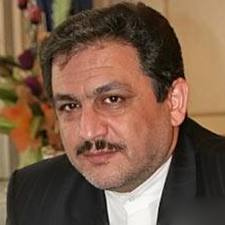Baku, Tel Aviv, and Iranian Concerns

IRD: Mr. Afshar, what is the significance of Azerbaijan for Israel?
AS: A certain array of geopolitical, geostrategic, and geoeconomic features have made Azerbaijan important for Israel. According to Israeli political scientist Ephraim Inbar, fear of Iran and Islamism, suspicion towards Russia, friendship with Turkey, and wish to be integrated in the West are commonalities which have brought Israel and the Republic of Azerbaijan closer. Overall, in its general strategy, Tel Aviv relies on the Jewish Diaspora to advance its interests. Azerbaijan’s Jewish community contributes to Israel’s expansion of its cultural (through film festivals and book fairs), economic, and political influence. Add to that the demonization of Iran and Islamism, and wielding perceived common threats. Israel has also tried to take advantage of the existing gap between Caucasian states (Armenia-Azerbaijan, Georgia-Abkhazia) to maintain its presence in this region. Many of the political elite of Azerbaijani parties and journalists are on Israel’s payroll. Tel Aviv also tries to avail itself of Washington’s influence in Azerbaijan to advance its interests in the region.
IRD: What is the current state of relations between Israel and Azerbaijan?
AS: A significant trait in the relations between Tel Aviv and Baku is their low profile. This is what both sides prefer, due to regional sensitivities. Nevertheless, it seems that despite significant progress in cultural and economic affairs, Azerbaijan has failed to achieve its main goals, which are recapturing the Nagorno-Karabakh region and forging closer ties with the US through its relations with Israel.
IRD: Israel has tried to contain Iran’s regional influence through closer cooperation with Azerbaijan. How have they acted in this area?
AS: The truth is that Iran’s face-off with Israel, differences with the Republic of Azerbaijan, ongoing tension with the US, and disputes with several Muslim countries of the Middle East and the Persian Gulf region have created an unwritten anti-Iran alliance in both ‘hard’ and ‘soft’ aspects. Azerbaijan’s rulers are obviously concerned about the spread of political Islam in their land, while Israel is angst ridden about Iran’s nuclear program. So their engagement into a collaboration backed by the United States is not surprising. Nevertheless, the Republic of Azerbaijan can’t express all-out cooperation with Israel against Iran, considering that it shares a relatively long border (611 KMs) with Iran, is in some fields economically dependent on Iran, and has its own security concerns.
IRD: What goals do Israel and Azerbaijan have from bilateral relations?
AS: Generally, these can be recounted as Azerbaijan’s goals: using the powerful pro-Israel lobby in the US to influence the US government’s decisions, particularly regarding the Nagorno-Karabakh conflict, enjoying Israel’s technological capabilities in telecommunications, medicine, agriculture, etc., collaboration with Tel Aviv in the construction of the Baku-Tbilisi-Ceyhan (and perhaps Baku-Tbilisi-Erzurum) pipeline, cooperation with Israel's security services to identify pro-Armenia saboteurs, putting a break on Iran-Armenia ever-friendlier relations, changing Russia’s behavior, receiving incentives in the Caspian Sea, blocking Islamic demands in Azerbaijan, and curbing Iran’s media and political influence in Azerbaijan.
Israel also follows a variety of goals which include showcasing an ideal relation with a Muslim country as a step to normalize ties with other Muslim countries, increasing the gap between Muslim countries of Caucasia, the Middle East and the Persian Gulf, containing Iran’s influence in Azerbaijan, influencing Russia’s behavior, satisfying its energy needs, and mending fences with Turkey, considering their current strained relations.
IRD: How should the Islamic Republic of Iran deal with the warm ties between Baku and Tel Aviv?
AS: I think building trust at the regional level should become Iran’s diplomatic priority. Gaining the trust of Azerbaijani public opinion and initiating transparent and constructive negotiations with Baku and eventually launching a step-by-step plan to resolve mutual problems are all imperative.

